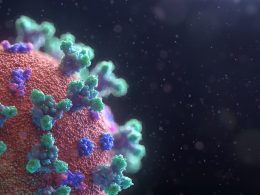Introduction: In an era where we seek to unravel the mysteries of the human condition, understanding life expectancy has become an intriguing subject. Life expectancy, the average number of years a person is expected to live, is influenced by a myriad of factors ranging from genetics and lifestyle choices to advancements in healthcare. In this article, we will delve into the science of life expectancy, exploring how researchers predict lifespan and what individuals can do to lead longer, healthier lives.
Predicting Life Expectancy: Predicting life expectancy is a complex endeavor that involves a blend of statistical analysis, medical research, and demographic trends. While it is impossible to provide an exact prediction for an individual, scientists have developed models and indicators that offer valuable insights into lifespan.
- Genetic Factors: Genetics play a crucial role in determining our life expectancy. Scientists have identified certain gene variants associated with longevity, such as the FOXO3 gene, which has been linked to a decreased risk of age-related diseases. Genetic testing and analysis can provide individuals with an understanding of their genetic predispositions, enabling them to make informed lifestyle choices.
- Lifestyle Choices: The choices we make in our daily lives significantly impact our longevity. Factors such as diet, exercise, smoking, alcohol consumption, and stress management can influence our health and increase or decrease our life expectancy. Studies consistently show that adopting a healthy lifestyle can lead to a longer and more fulfilling life.
- Socioeconomic and Environmental Factors: Socioeconomic and environmental factors also play a crucial role in life expectancy. Access to quality healthcare, education, clean water, sanitation, and a safe environment are essential components of a longer life. Addressing these disparities and working towards a more equitable society can positively impact overall life expectancy.
- Medical Advancements: Advancements in medical science and healthcare have significantly contributed to increased life expectancy worldwide. Improved treatments, early detection methods, and preventive measures have helped combat diseases and extend lifespan. Staying informed about medical breakthroughs and utilizing preventive healthcare measures can enhance one’s chances of a longer life.
Leading a Longer, Healthier Life: While predicting exact lifespans remains elusive, there are steps individuals can take to lead longer, healthier lives:
- Maintain a Balanced Lifestyle: Adopt a balanced diet rich in fruits, vegetables, whole grains, and lean proteins. Engage in regular physical activity and prioritize mental health through stress reduction techniques and adequate sleep.
- Avoid Risky Behaviors: Quit smoking, limit alcohol consumption, and avoid illicit drug use. Engage in safe behaviors and take precautions to prevent accidents and injuries.
- Stay Informed and Proactive: Stay updated on the latest medical research, preventive measures, and screenings for age-related diseases. Regular health check-ups and screenings can detect potential health issues early on, increasing the chances of successful treatment.
- Build a Strong Social Support System: Maintain strong relationships with family, friends, and communities. Social connections have been linked to increased well-being and longevity.
Conclusion: While predicting the exact number of years one will live is beyond the realm of science, understanding the factors that influence life expectancy provides valuable insights. By embracing healthy lifestyle choices, staying informed, and addressing societal disparities, individuals can enhance their chances of living longer, healthier lives. Remember, it’s not just about the length of life but also the quality of the years we have.












